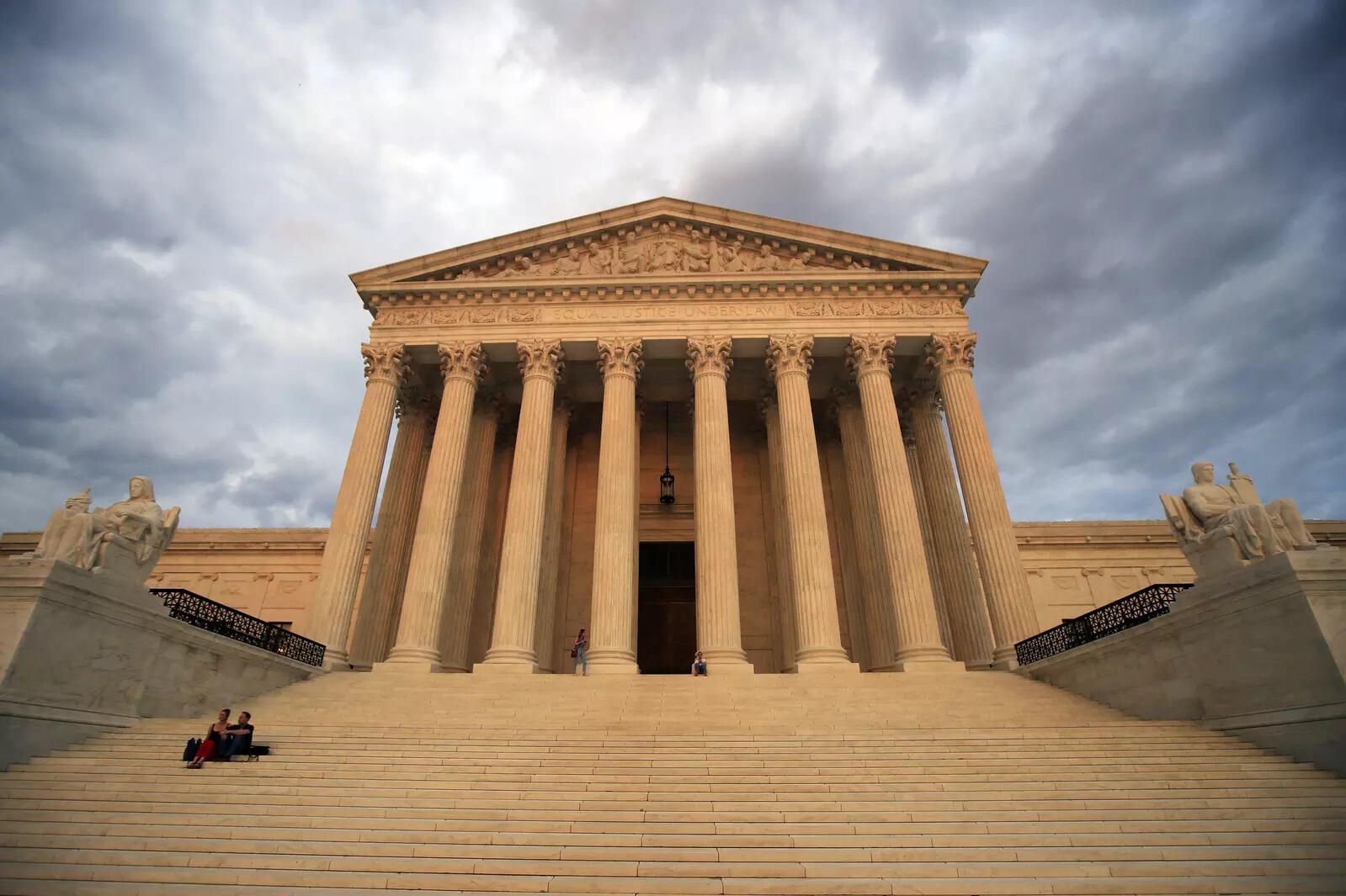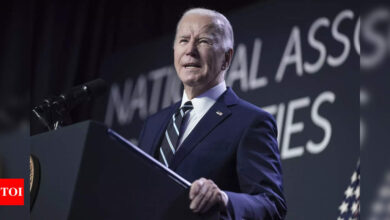World
US Supreme Court puts off considering state laws curbing internet platforms

[ad_1]
WASHINGTON: The Supreme Court asked the Biden administration on Monday for its views on whether the Constitution allows Florida and Texas to prevent large social media companies from removing posts based on the views they express.
The practical effect of the move was to put off a decision on whether to hear two major First Amendment challenges to the states’ laws for at least several months. If the court ends up granting review, as seems likely, it will hear arguments no earlier than October and will probably not issue a decision until next year.
The two state laws were largely the product of conservative frustration. The laws’ supporters said the measures were needed to combat what they called Silicon Valley censorship. In particular, they objected to the decisions of some sites to bar President Trump after the attack on the US Capitol.
The laws were challenged by two trade groups, NetChoice and the Computer & Communications Industry Association, which said the First Amendment prohibits the government from telling private firms whether and how to disseminate speech. TheFlorida law imposes fines on large social media platforms that refuse to transmit the views of politicians who run afoul of theirstandards.
The Texas law differs in its details, one judge wrote in a decision upholding it. The Florida law “prohibits all censorship of some speakers, ” he wrote, while the Texas law “prohibits some censorship of all speakers” when based on the views they express. The Texas law applies to sites with more than 50 million active monthly users, including Facebook and Twitter. It does not appear to reach smaller sites that appeal to conservatives, like Truth Social, the law’s challengers told the SC. The law also does not cover sites that are devoted to news, sports, entertainment, etc.
The SC has already had an encounter with the Texas law, temporarily blocking it in May while an appeal moved forward. The vote was 5 to 4. The court’s three most conservative members — Justices Samuel Alito Jr, Clarence Thomas and Neil Gorsuch — filed a dissenting opinion saying they would have left the law in place and that the issues were so significant the SC would have to consider them at some point. “At issue is a ground-breaking Texas law that addresses the power of dominant social media corporations to shape public discussion,” Justice Alito wrote.
The practical effect of the move was to put off a decision on whether to hear two major First Amendment challenges to the states’ laws for at least several months. If the court ends up granting review, as seems likely, it will hear arguments no earlier than October and will probably not issue a decision until next year.
The two state laws were largely the product of conservative frustration. The laws’ supporters said the measures were needed to combat what they called Silicon Valley censorship. In particular, they objected to the decisions of some sites to bar President Trump after the attack on the US Capitol.
The laws were challenged by two trade groups, NetChoice and the Computer & Communications Industry Association, which said the First Amendment prohibits the government from telling private firms whether and how to disseminate speech. TheFlorida law imposes fines on large social media platforms that refuse to transmit the views of politicians who run afoul of theirstandards.
The Texas law differs in its details, one judge wrote in a decision upholding it. The Florida law “prohibits all censorship of some speakers, ” he wrote, while the Texas law “prohibits some censorship of all speakers” when based on the views they express. The Texas law applies to sites with more than 50 million active monthly users, including Facebook and Twitter. It does not appear to reach smaller sites that appeal to conservatives, like Truth Social, the law’s challengers told the SC. The law also does not cover sites that are devoted to news, sports, entertainment, etc.
The SC has already had an encounter with the Texas law, temporarily blocking it in May while an appeal moved forward. The vote was 5 to 4. The court’s three most conservative members — Justices Samuel Alito Jr, Clarence Thomas and Neil Gorsuch — filed a dissenting opinion saying they would have left the law in place and that the issues were so significant the SC would have to consider them at some point. “At issue is a ground-breaking Texas law that addresses the power of dominant social media corporations to shape public discussion,” Justice Alito wrote.
#Supreme #Court #puts #state #laws #curbing #internet #platforms





